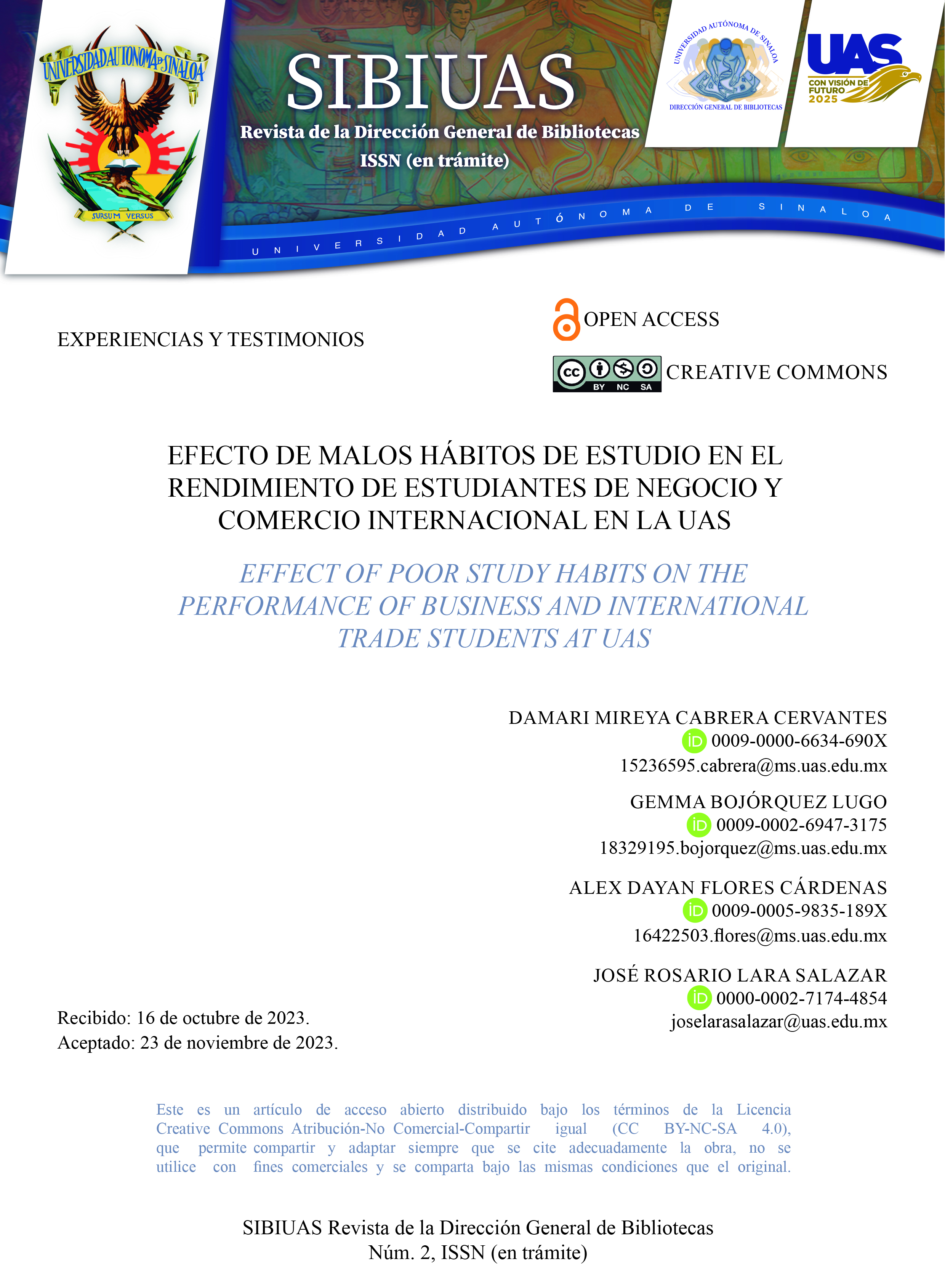Effect of poor study habits on the performance of business and international trade students at UAS
Keywords:
Study habits, University students, Academic performance, Dropout, ProcrastinationAbstract
Low academic performance persists as a challenge for students worldwide and at various educational levels. According to some authors, its roots can be traced back to primary and secondary education. Upon entering university, students confront extensive knowledge, increased complexity in subjects and disciplines, and must adapt to the vigorous pace of academic work. Additionally, they must possess developed cognitive abilities, along with methods, techniques, and, above all, competent study habits. Reality is reflected in the low graduation rate, as many students abandon their studies primarily due to poor academic performance resulting from inadequate study habits or a lack of interest in the field. In both cases, the use of study habits emerges as a determining factor. This research focuses on analyzing how poor study habits impact the academic performance of university students. A quantitative study was conducted with students from the Bachelor's program in Business and International Commerce at the Faculty of Accounting and Administration of the Autonomous University of Sinaloa to identify their poor study habits and analyze their impact on academic performance. Common practices such as procrastination, lack of planning, excessive use of
electronic devices during study sessions, and a deficiency in effective organizational techniques will be examined. The main objective is to understand how these habits affect grades and overall academic success in the university setting. The research also suggests possible strategies to improve these habits and ultimately enhance the academic performance of university students.
Downloads

Downloads
Published
Issue
Section
Categories
License
Copyright (c) 2024 SIBIUAS Revista de la Dirección General de Bibliotecas

This work is licensed under a Creative Commons Attribution-NoDerivatives 4.0 International License.

